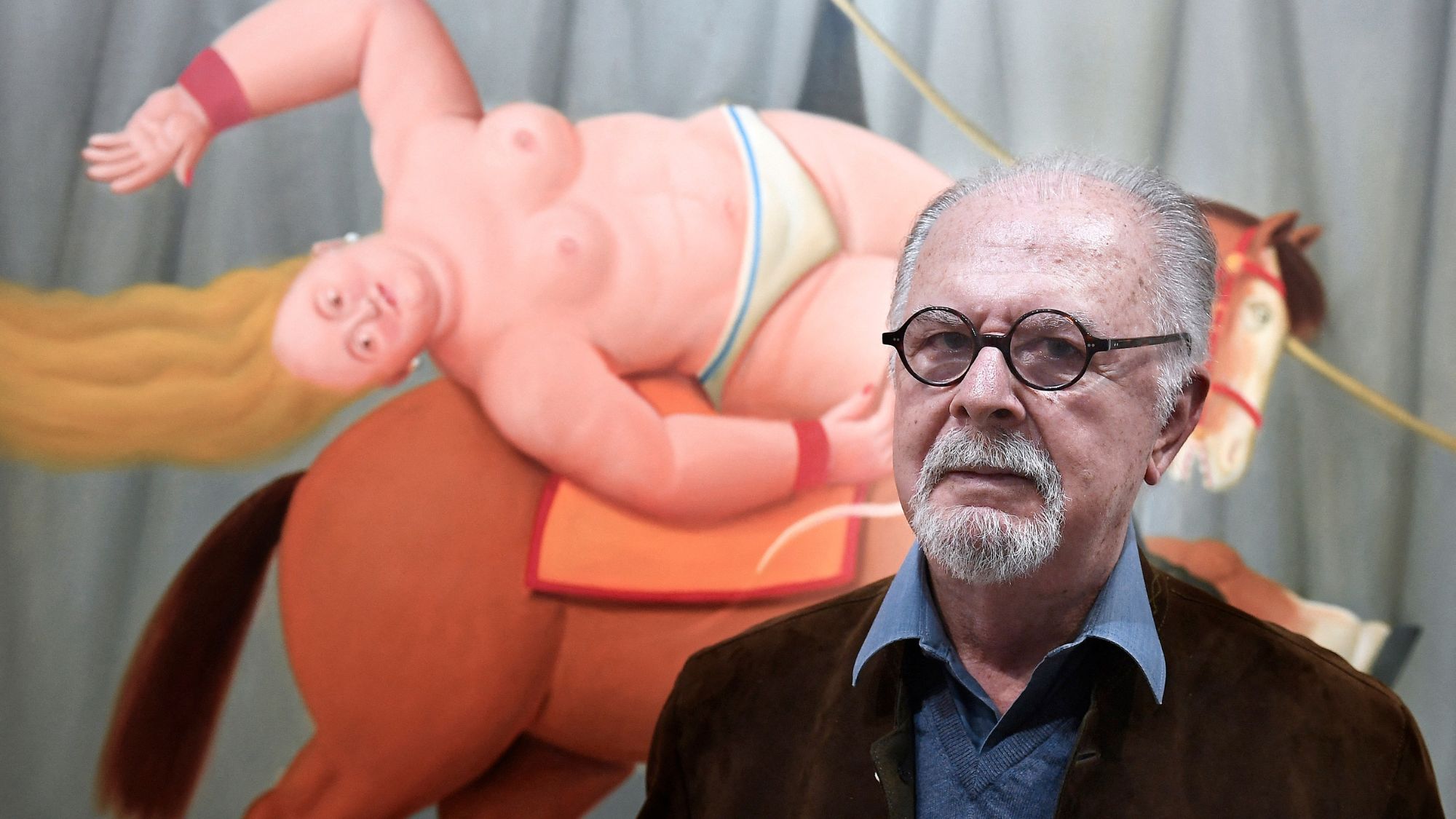Fernando Botero obituary: artist of 'whimsical rotundity'
Colombian painter and sculptor was known for his 'exuberant style'

A free daily email with the biggest news stories of the day – and the best features from TheWeek.com
You are now subscribed
Your newsletter sign-up was successful
Fernando Botero, whose paintings of "rotund, inflated yet sensuous figures" made him one of the most famous Latin American artists of the 20th century, died in Monaco on 15 September at the age of 91, said Tim Johnson in The Washington Post. Botero's "exuberant style" drew upon the trend for magical realism to blur the boundaries "between the real and the fantastical", yet in a way that reflected his natural "cheekiness": a typical canvas might see "a humongous ballet dancer en pointe at the barre", or a bulbous likeness of Marie Antoinette "sauntering through the cobblestoned street of a Colombian town".
Botero was born to a family of modest means in Medellín, Colombia, in 1932, said The Times. Although he would spend much of his life abroad, he would mine his native city for artistic inspiration "again and again" through his long life. He committed himself to art early on – after briefly training to be a matador – and held his first exhibition at 19, then left for Europe the following year. In Florence, in 1953, he discovered the work of masters including Piero della Francesca, an experience that would prove "life-transforming". He would combine his own style – influenced by the murals of Diego Rivera – with the techniques of Renaissance painting, reimagining the Mona Lisa as "a fleshy-faced 12-year-old girl, smiling obliquely and clutching a doll".
From the 1960s, Botero's "florid, rounded figures" became immensely popular, said Stephen Kinzer in The New York Times. Critics, however, loathed him, condemning his pictures as whimsical, banal and "out of touch". This perception dogged him until his final decades, when he produced a well-received series of works chronicling the plight of prisoners in Iraq's Abu Ghraib prison. His paintings (and, from the 1970s, sculptures) had always had a satirical edge, frequently featuring "foppish or self-important" authority figures – including "overstuffed" generals and bishops. Yet he always endowed his corpulent subjects with a measure of dignity, and insisted that he "never painted fat people, saying he wished simply to glorify the sensuality of life". Beauty, he would always stress, was very much a relative concern. "There are those who see the monstrous in my work," he once said, "but my work is what it is."
The Week
Escape your echo chamber. Get the facts behind the news, plus analysis from multiple perspectives.

Sign up for The Week's Free Newsletters
From our morning news briefing to a weekly Good News Newsletter, get the best of The Week delivered directly to your inbox.
From our morning news briefing to a weekly Good News Newsletter, get the best of The Week delivered directly to your inbox.
A free daily email with the biggest news stories of the day – and the best features from TheWeek.com
-
 James Van Der Beek obituary: fresh-faced Dawson’s Creek star
James Van Der Beek obituary: fresh-faced Dawson’s Creek starIn The Spotlight Van Der Beek fronted one of the most successful teen dramas of the 90s – but his Dawson fame proved a double-edged sword
-
 Is Andrew’s arrest the end for the monarchy?
Is Andrew’s arrest the end for the monarchy?Today's Big Question The King has distanced the Royal Family from his disgraced brother but a ‘fit of revolutionary disgust’ could still wipe them out
-
 Quiz of The Week: 14 – 20 February
Quiz of The Week: 14 – 20 FebruaryQuiz Have you been paying attention to The Week’s news?
-
 Corruption: The spy sheikh and the president
Corruption: The spy sheikh and the presidentFeature Trump is at the center of another scandal
-
 Putin’s shadow war
Putin’s shadow warFeature The Kremlin is waging a campaign of sabotage and subversion against Ukraine’s allies in the West
-
 The fall of the generals: China’s military purge
The fall of the generals: China’s military purgeIn the Spotlight Xi Jinping’s extraordinary removal of senior general proves that no-one is safe from anti-corruption drive that has investigated millions
-
 Epstein files topple law CEO, roil UK government
Epstein files topple law CEO, roil UK governmentSpeed Read Peter Mandelson, Britain’s former ambassador to the US, is caught up in the scandal
-
 Iran and US prepare to meet after skirmishes
Iran and US prepare to meet after skirmishesSpeed Read The incident comes amid heightened tensions in the Middle East
-
 Syria’s Kurds: abandoned by their US ally
Syria’s Kurds: abandoned by their US allyTalking Point Ahmed al-Sharaa’s lightning offensive against Syrian Kurdistan belies his promise to respect the country’s ethnic minorities
-
 Israel retrieves final hostage’s body from Gaza
Israel retrieves final hostage’s body from GazaSpeed Read The 24-year-old police officer was killed during the initial Hamas attack
-
 China’s Xi targets top general in growing purge
China’s Xi targets top general in growing purgeSpeed Read Zhang Youxia is being investigated over ‘grave violations’ of the law